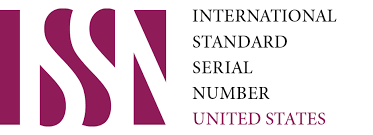The State and Human Rights NGOs In Cameroon: A Critical Overview of The Relationship
Keywords:
Human rights, civil society, NGOS, national human rights institutionsAbstract
In Cameroon, there is a vibrant civil society which makes clear the idea that organisations in this sector have important roles to play in the society. This can be attributed to the fact that there are legislations such as the law on freedom of association which allows for the simple creation of associations in the country. Also, there is a good sense of collaboration between the government and the civil society which is a precursor to the fact that the State is aware of the benefits of such collaboration. There is failing obligation of the government to fully promote and protect human rights, as the State is the primary body to promote and protect human rights. Also, despite the move towards cooperation, the State has maintained a stronghold on the civil society with legislations which gives public authorities leverage over human rights defenders, especially. This paper embarks on an analysis of the working relationship between the various State institutions and human rights civil society organisations. As a result, we look at the cooperation and the areas for improvement
References
Ewumbue, M. C. (1992) The Right to Inform and the 1990 Press Law in Cameroon. Africa Media Review, 6(3).
Fonjong, L. N. (2007) The Challenges of Nongovernmental Organisations in Anglophone Cameroon. (New York: Nova Science Publishers Inc,).
Forje J. W. “Political Leadership, State–Civil Society Relations and the Search for Development Alternatives” in E. Y. Vudo (ed.) Civil Society and the Search for Development Alternatives in Cameroon. Oxford: African Books Collective
Nkwi G.W. (2006), The Dilemma of Civil Society in Cameroon Since 1990: Which Way Forward? African Journal of International Affairs, 9(1 And 2), 91–106.
Downloads
Published
Issue
Section
License

This work is licensed under a Creative Commons Attribution 4.0 International License.
User Rights
Under the Creative Commons Attribution-NonCommercial 4.0 International (CC-BY-NC), the author (s) and users are free to share (copy, distribute and transmit the contribution).
Rights of Authors
Authors retain the following rights:
1. Copyright and other proprietary rights relating to the article, such as patent rights,
2. the right to use the substance of the article in future works, including lectures and books,
3. the right to reproduce the article for own purposes, provided the copies are not offered for sale,
4. the right to self-archive the article.













